Question And Answer
Publications
Articles, publications, books, tools and multimedia features from the U.S. Institute of Peace provide the latest news, analysis, research findings, practitioner guides and reports, all related to the conflict zones and issues that are at the center of the Institute’s work to prevent and reduce violent conflict.

Jonas Claes on Liberia and Kenya’s Elections
Jonas Claes joins us to talk about Liberia’s election and the significance of the country's first peaceful transfer of power since 1944. Claes also lays out the challenges for the Kenyan election
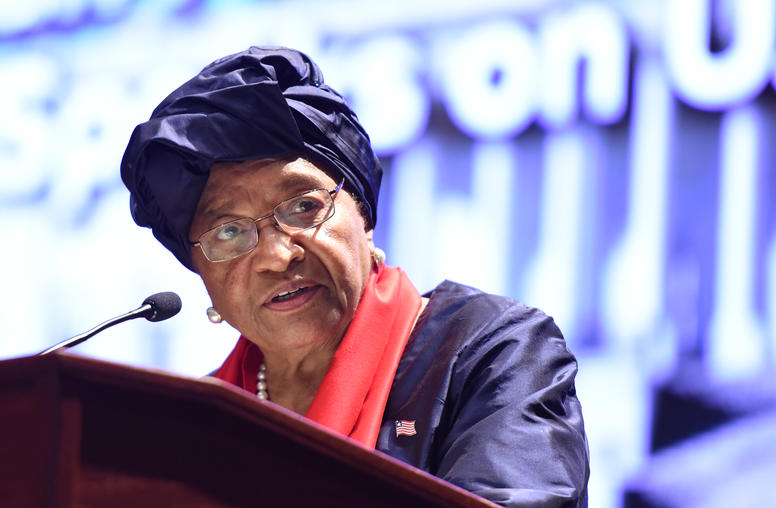
Liberia’s Sirleaf Calls on U.S. to Remain Global Leader
Liberian President Ellen Johnson Sirleaf called on the U.S. to maintain its position of world leadership, a role that she said rescued her country from a ruinous civil war and an outbreak of a terrifying, deadly disease.
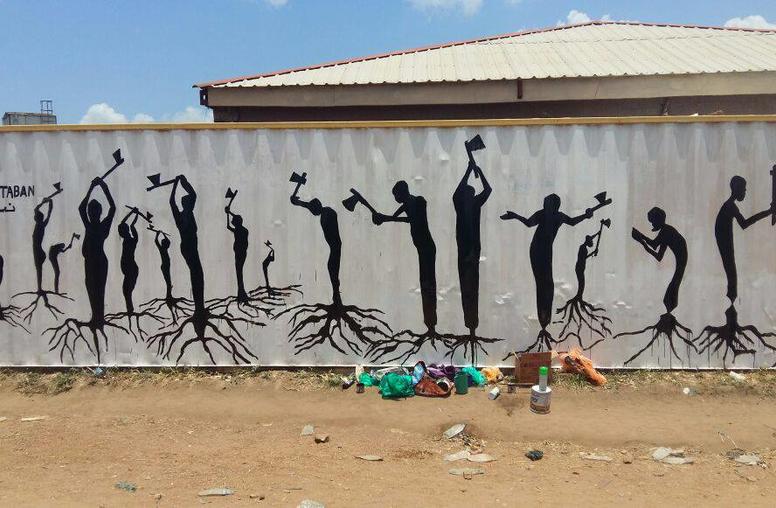
Q&A: Speaking Truth to Power—What Really Builds Peace
As global leaders debate ways to reduce the world’s violence at this year’s United Nations General Assembly session, many peacebuilding experts and civil society activists argue that more of this work needs to be done at the grass roots, often through nonviolent movements for change.
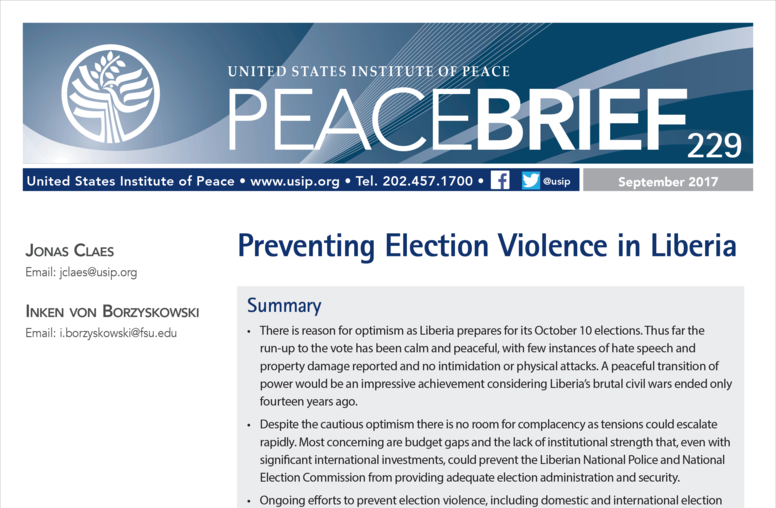
Preventing Election Violence in Liberia
Liberia will hold presidential and legislative elections on October 10. The run-up to the vote has been primarily peaceful, and the country has engaged in ongoing efforts to prevent election violence. This Peace Brief, based on USIP research, assesses the risk of election violence and the scope of violence prevention efforts, and provides recommendations for ongoing prevention.
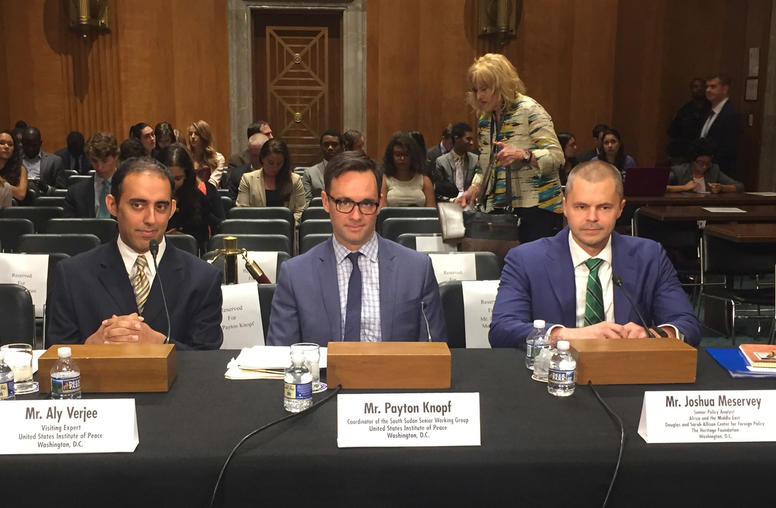
South Sudan’s Conflict and Famine: Payton Knopf Testimony
Payton Knopf provided testimony on South Sudan’s conflict and famine before the Senate Foreign Relations Subcommittee on Africa and Global Health Policy.
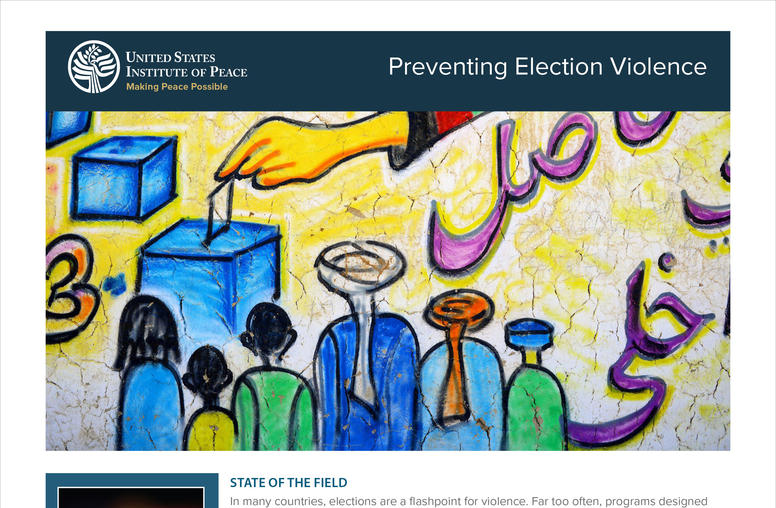
Preventing Election Violence
In many countries, elections are a flashpoint for violence. Far too often, programs designed to prevent election violence are based on intuition instead of evidence, or efforts concentrate solely on logistical or technical support on election day. When prevention efforts fail and violence erupts, officials may respond with a counter-productive crackdown, citizens lose trust in the ability of government and the rule of law to protect them, and years of development efforts are reversed.

Responding to the Global Threat of Closing Civic Space: Policy Options
Maria Stephan, senior policy fellow at the U.S. Institute of Peace, testified before the Tom Lantos Human Rights Commission on March 21, 2017 on "Responding to the Global Threat of Closing Civic Space: Policy Options."
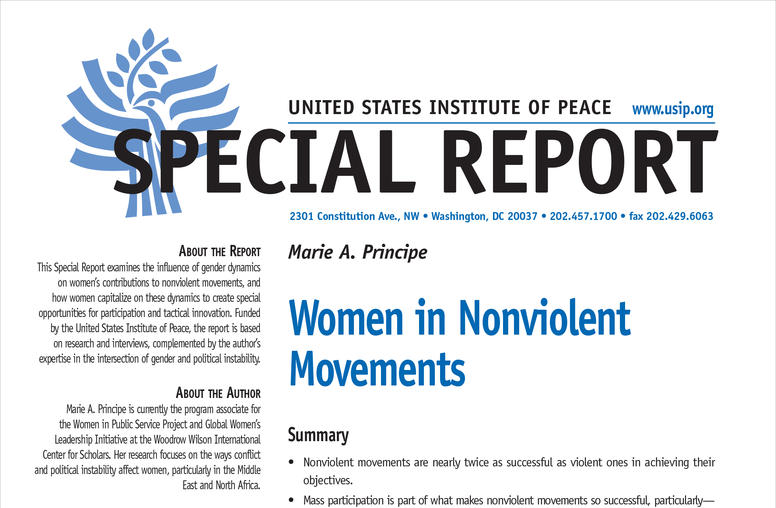
Women in Nonviolent Movements
Women’s meaningful involvement in civil resistance movements has shown to be a game changer. Examining movements in Argentina, Chile, Egypt, Liberia, the Palestinian territories, Poland, Syria, and the United States, this report advocates for the full engagement of women and their networks in nonviolent movements for a simple and compelling reason—because greater female inclusion leads to more sustainable peace.
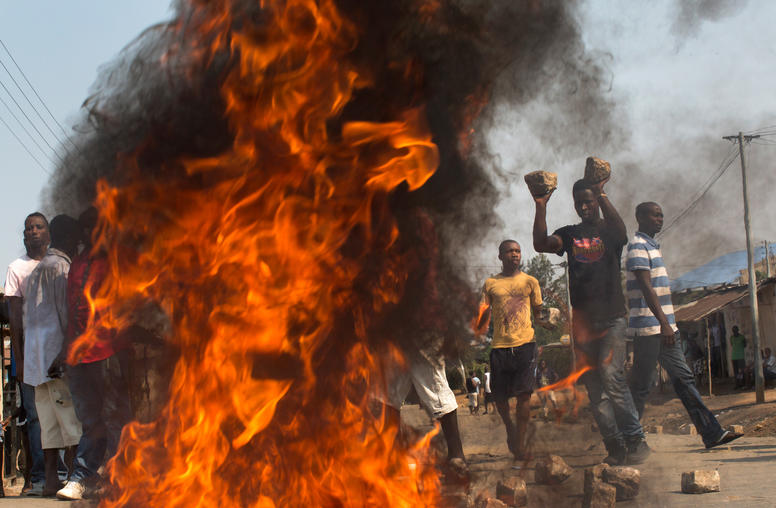
Q&A: What Works in Preventing Election Violence
The elections this year in the Philippines, the Democratic Republic of the Congo, Gabon and even the United States, demonstrate how high-stakes elections frequently trigger anxiety, tension or even violence or the threat of unrest. Properly managed elections allow opposing groups to press their claim to power through a peaceful process. But in fragile democracies, elections frequently feature intimidation or violent protest. U.S. Institute of Peace Senior Program Officer Jonas Claes, editor o...
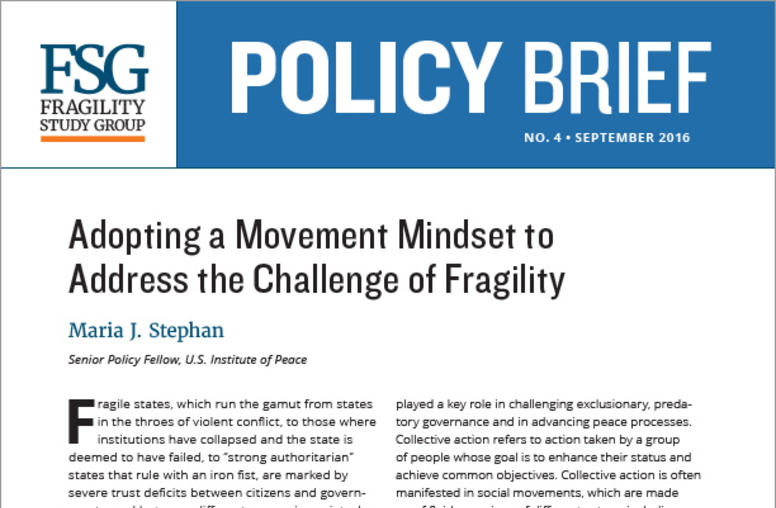
Adopting a Movement Mindset to Address the Challenge of Fragility
The Fragility Study Group is an independent, non-partisan, effort of the Carnegie Endowment for International Peace, the Center for a New American Security and the United States Institute of Peace. The chair report of the study group, U.S. Leadership and the Challenge of State Fragility, was released on September 12. This brief is part of a series authored by scholars from the three institutions that build on the chair report to discuss the implications of fragility on existing U.S. tools, st...